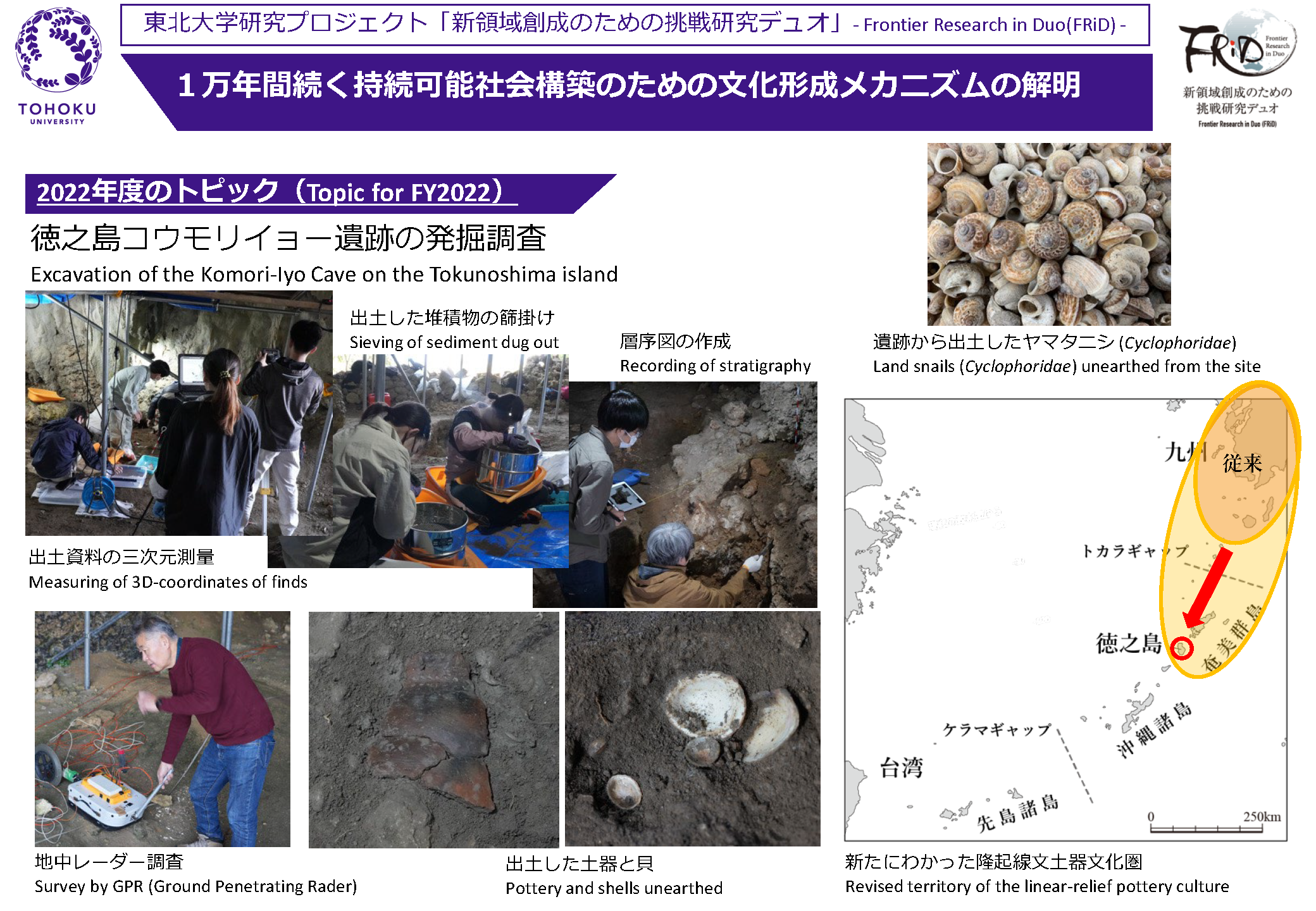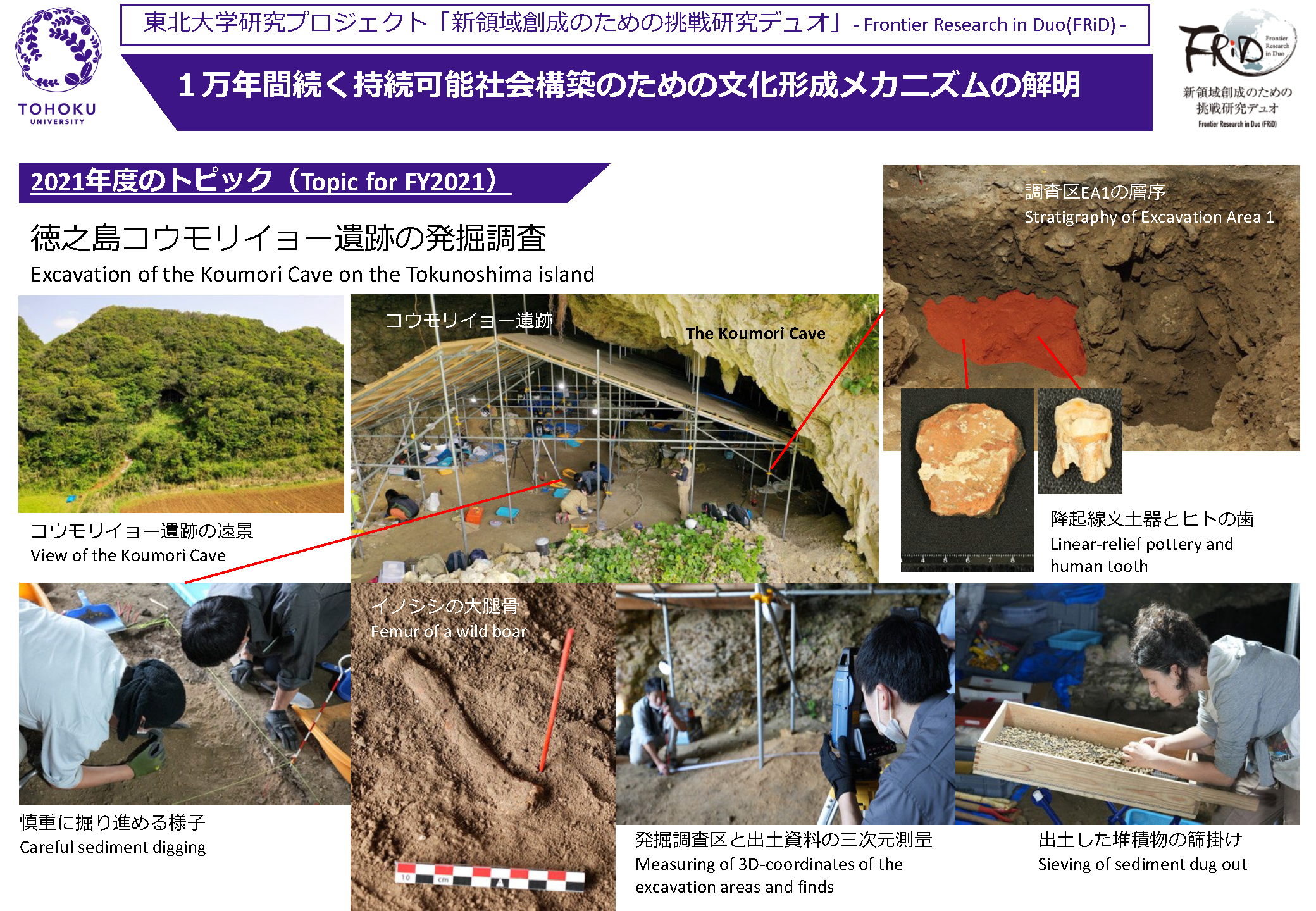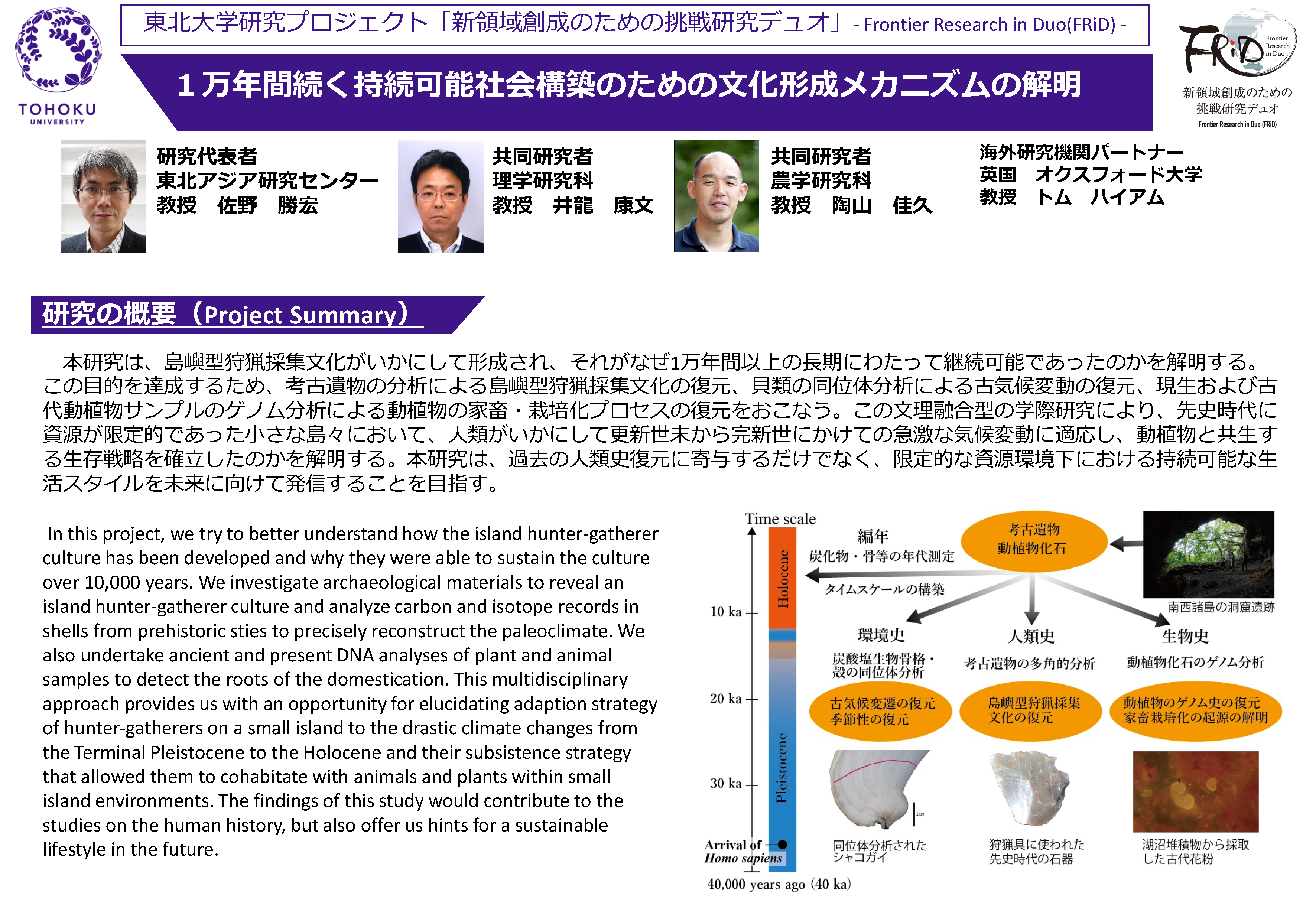Researcher name

Co-PI
Graduate School of Agricultural Science
Prof. Yoshihisa Suyama
Project Summary
In this project, we try to better understand how the island hunter-gatherer culture has been developed and why they were able to sustain the culture over 10,000 years. We investigate archaeological materials to reveal an island hunter-gatherer culture and analyze carbon and isotope records in shells from prehistoric sties to precisely reconstruct the paleoclimate. We also undertake ancient and present DNA analyses of plant and animal samples to detect the roots of the domestication. This multidisciplinary approach provides us with an opportunity for elucidating adaption strategy of hunter-gatherers on a small island to the drastic climate changes from the Terminal Pleistocene to the Holocene and their subsistence strategy that allowed them to cohabitate with animals and plants within small island environments. The findings of this study would contribute to the studies on the human history, but also offer us hints for a sustainable lifestyle in the future.
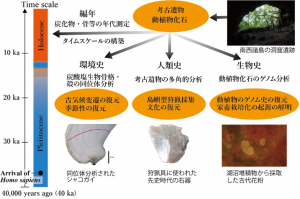
Results
【2022】
【2021】
【2020】
【2019】
1.Constructing database of the archaeological sites and improving the analytical methods
Three-dimensional reconstruction of use-wear traces on experimental samples was undertaken to improve the method for identifying the function of archaeological artifacts.
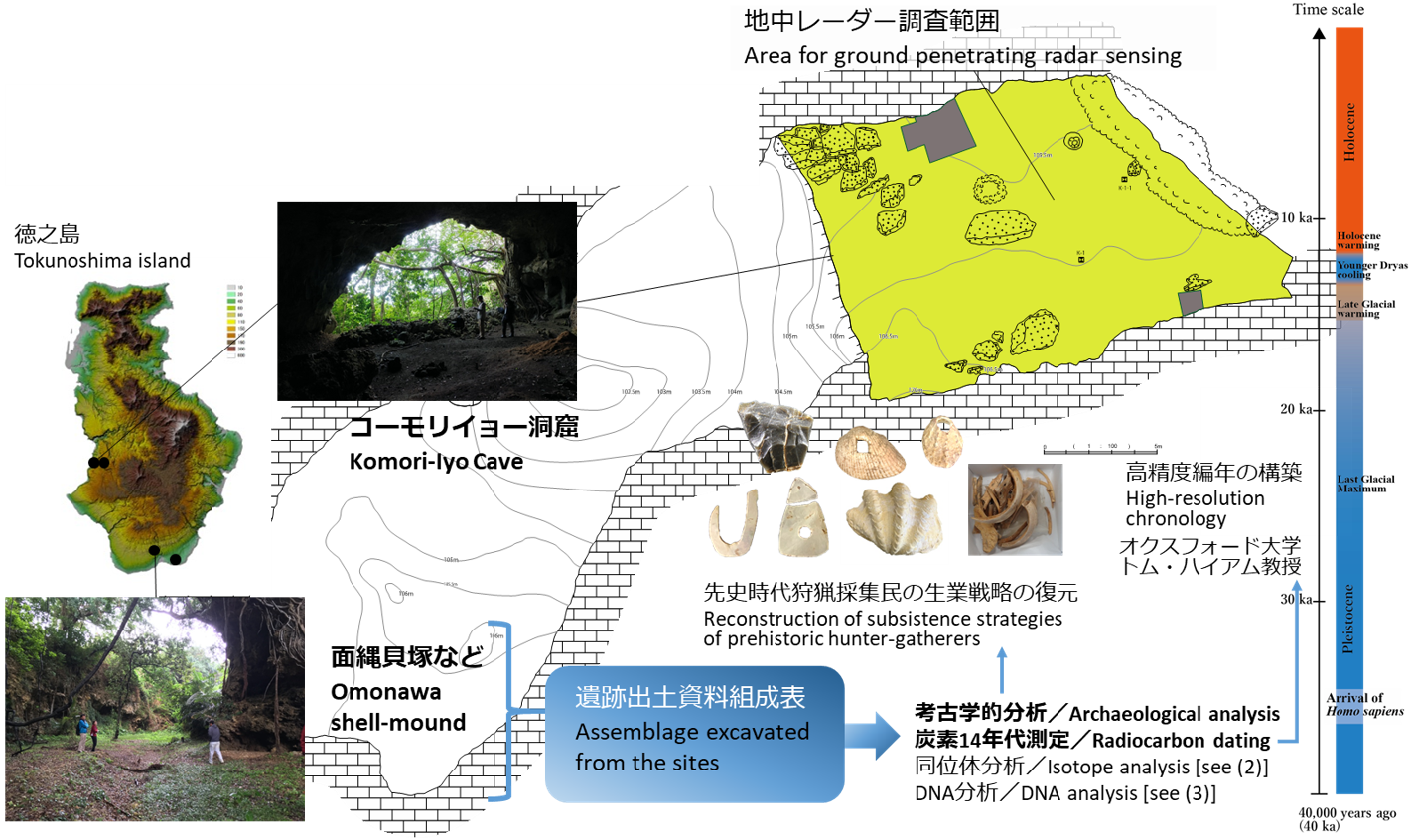
2.Reconstructing sea surface temperatures (SSTs) and identifying the season of collection of marine organisms based on chemical and isotopic composition of their skeleton and shells.
We established a new relationship between oxygen isotopes of Tridacna squamosa (δ18OS) and seawater.
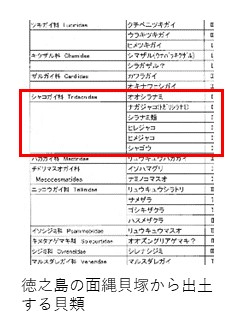
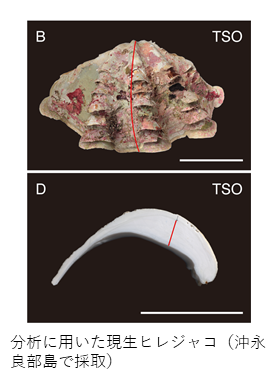
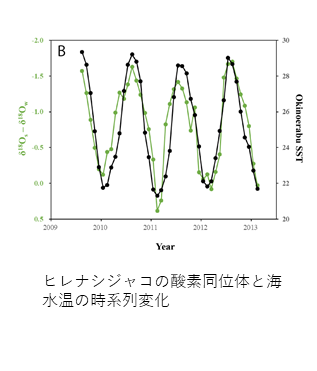
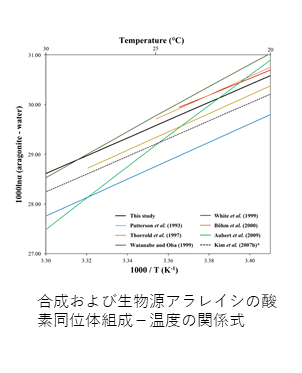
3.Improving next-generation DNA analyses technology: aiming at recovery of plant and animal domestication processes
We have improved Multiplexed ISSR genotyping by sequencing (MIG-seq; Suyama and Matsuki, 2015) method to a more accurate and convenient protocol than the original one.
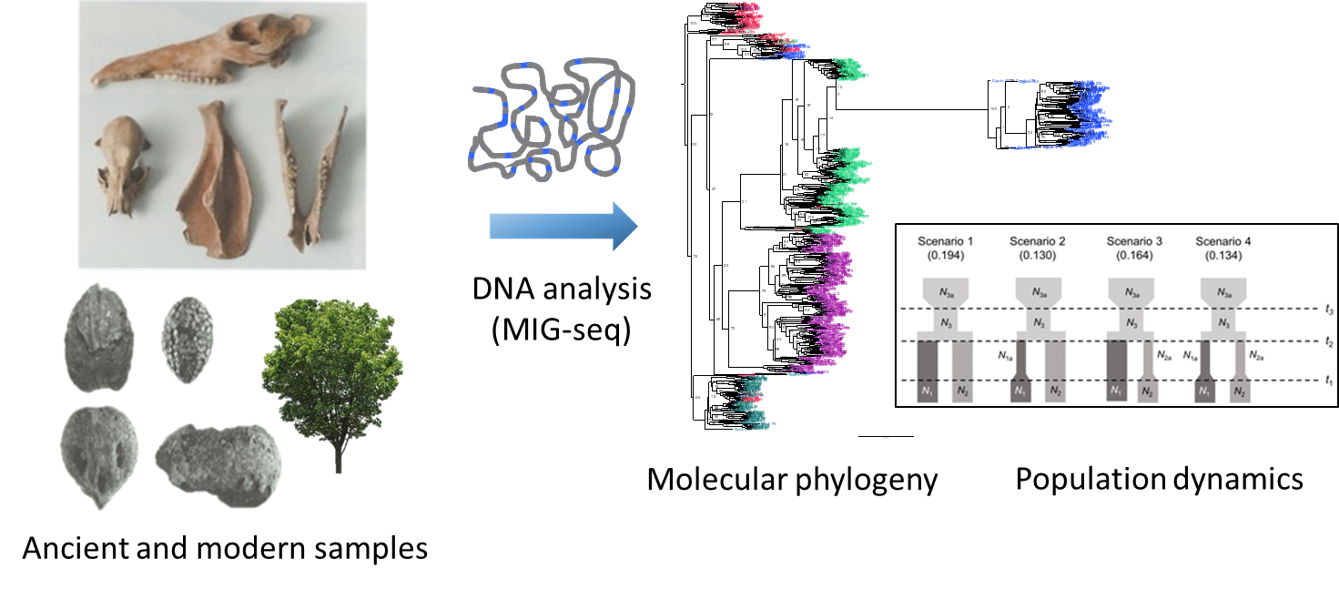
Press Release
2023.07.20:Missing Island Explains How Endemic Species on the Miyako Islands Emerged
2021.11.10: Reconstructing the air temperature of Okinawa Jima Island during the last glacial period




